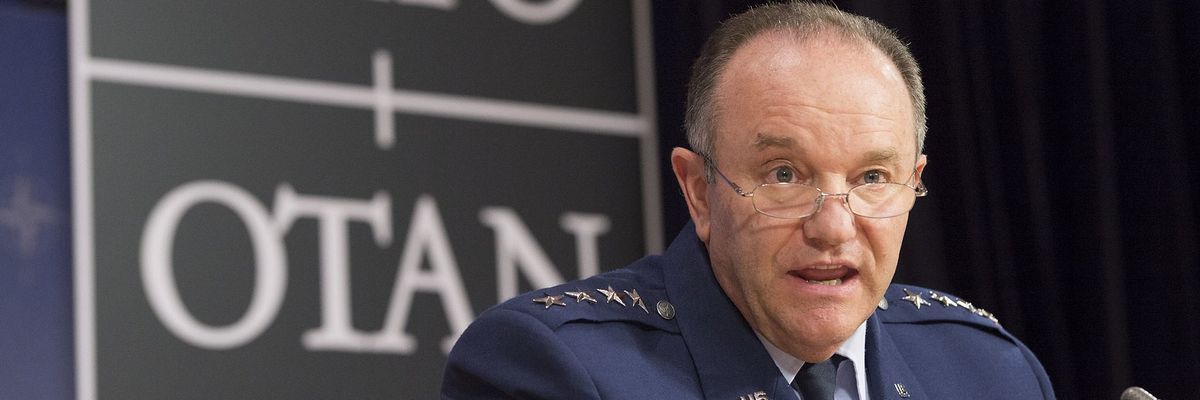Former NATO top commander Gen. Philip Breedlove is the latest big name to come out for putting troops on the ground in Ukraine. Breedlove, who has been angling for weeks for a more muscular policy against Russia, told The Times of London that it’s time for real action. And he may have the ear of the White House: the article says he's named as one of “several high-ranking retired commanders advising the Biden administration on Ukraine."
“So what could the West do? Well, right now there are no Russian troops west of the Dnieper River. So why don’t we put Nato troops into western Ukraine to carry out humanitarian missions and to set up a forward arms supply base?”
Of course it wouldn’t stop there. Most likely Russia will react aggressively, if not explosively, since setting up “a forward arms supply base” would be fully entering this war on the side of Ukraine. NATO would be a co-belligerent in every way, with its 40,000 troops now stationed on alliance’s eastern front considered future enemy combatants. At the end of April, the Pentagon mobilized some 14,000 troops, along with F-35 strike fighters and Apache helicopters to Poland, Hungary, and the Baltics. A total of 100,000 U.S. troops now spread across Europe would no doubt be on some level of alert if NATO entered the fray.
Breedlove, who served as NATO’s Supreme Allied Commander from 2013 to 2016, said this move was essential for the protection of Odesa, a strategic Ukrainian port city on the Black Sea.
“If Odesa falls, Ukraine will become a land-locked country with no access to the Black Sea. The impact on Ukraine’s GDP would be huge. It would be ruinous for the economy,” he told the Times.
“The West is saying it is providing everything Ukraine needs to defend against the Russians. But the people of Mariupol had to fight without Stingers [anti-aircraft missiles]. That was a failure by the West.”
He added: “Now we need to make sure that the Ukrainians win the battle for Odesa.”
Earlier this month, Breedlove was complaining that the West’s fears of nuclear war were working in Putin’s favor.
“We have been so worried about nuclear weapons and World War III that we have allowed ourselves to be fully deterred. And [Putin], frankly, is completely undeterred. He has switched into the most horrific war against the citizens of Ukraine, it is beyond criminal at this point.”
U.S. weakness on this score bleeds over to our relations with Iran, North Korea, and China, he asserts:
“The message we're sending to the entire world is if you get a nuclear weapon, you're going to have a certain reaction from the West and certainly from the United States...[that's all]. And I don't think that's the message we want to send them.”
Of course, a month before this Breedlove said he was “not advocating a war” when asked about what appeared to be his support for a “humanitarian no fly zone.” Today, advocating NATO involvement directly in Ukraine would be a giant leap beyond that, and who knows what kind of opening for others coming down with similar war fever in Washington. Last week, Delaware Sen. Chris Coons was forced to walk back comments he made that suggested he too, was in favor of putting troops on the ground against Russia.
















